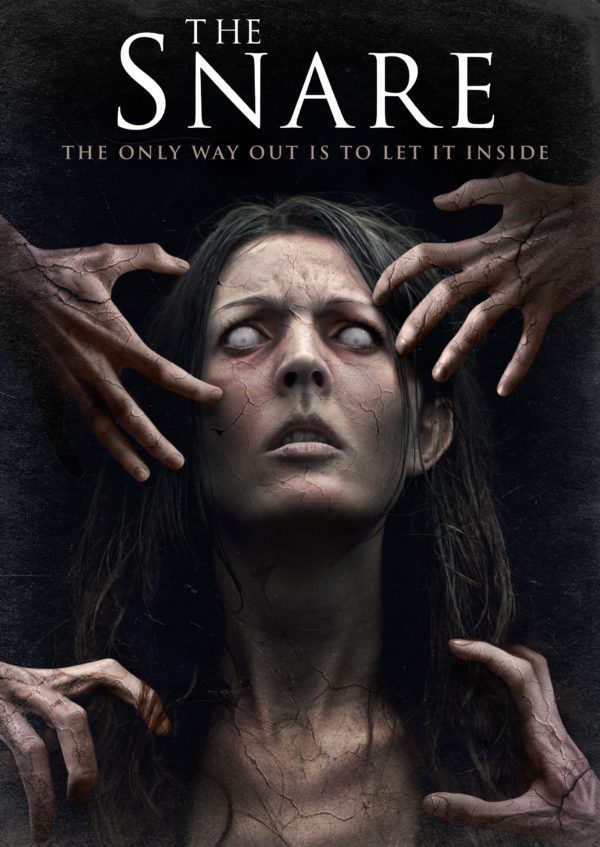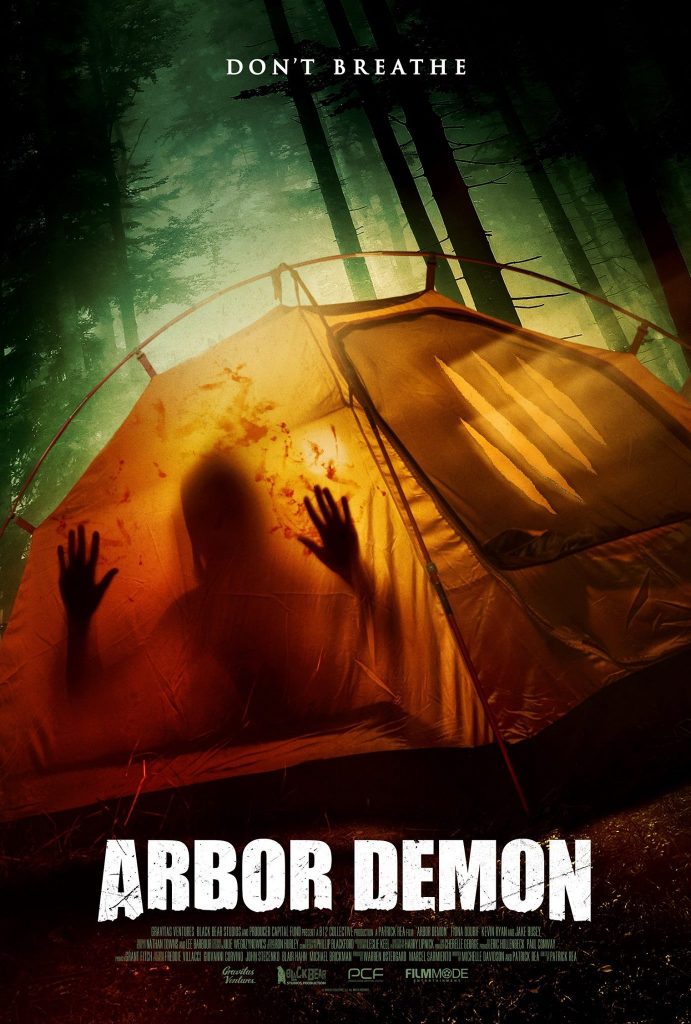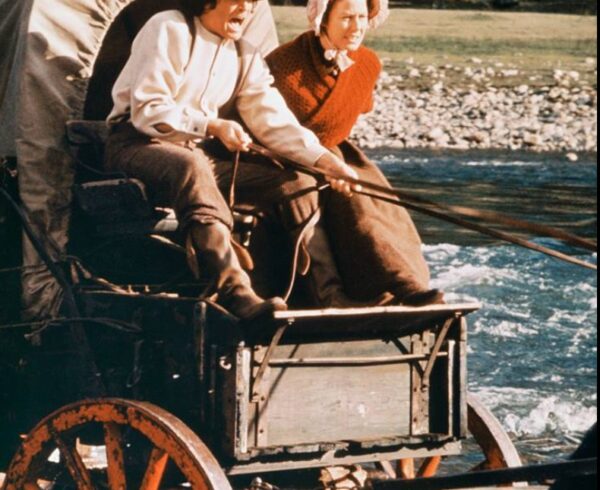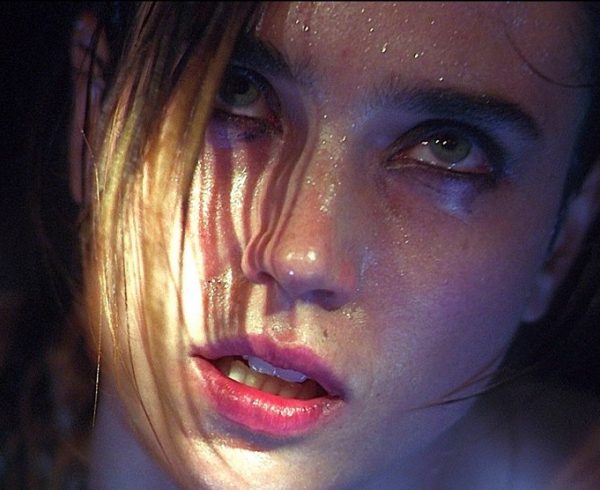Ever since the ancient Jews took the advice of the Ten Commandments and started taking a day off for rest and contemplation, folks have been reaping the benefits of the weekend.
In an article for the Journal of Social and Clinical Psychology, Ryan, Bernstein, and Brown explain “that for both male and female workers, weekend and non-work activities were associated with several indicators of well-being, and these relations were partially or fully mediated by basic psychological need satisfaction.” In short, taking time off is good for our mental and spiritual well-being.
Of course, that assumes our weekend plans go as we hope. A couple of recent direct-to-video releases explore just what horrors might await those whose downtime gets derailed by the unexpected.
THE SNARE
Things are unbearable for Alice (Eaoifa Forward) at home, what with her repulsive, sexually abusive father never more than a few steps away. It’s no wonder then that she would agree to play the part of third wheel on a weekend getaway with her party girl pal Lizzy (Rachel Warren) and Lizzy’s loutish boyfriend Carl (Dan Paton).
Having pilfered keys to a seaside apartment from Lizzy’s father, the trio are surprised to find the entire building deserted upon their arrival. More disconcerting is the fact that once they enter their top floor room, the elevator immediately stops functioning, the exit doors disappear, and there is no fire escape to be found.
Before long, their food begins to rot and tempers start to flare. Soon, what was supposed to have been a three-day sabbatical turns into a never-ending nightmare of madness, murder, and maggots.
Aspiring filmmakers with no budget take note; if you lack the funds for set design, just write a movie that takes place entirely inside an empty apartment. At least that seems to be the route writer/director C.A. Cooper has taken with The Snare.
Of course, if you’re going to try that approach, it’s best to make sure you get good performances out of your actors, because there isn’t going to be anything else for the viewers to pay attention to. So, to encourage his three leads to give their best, Cooper infamously tried a few unconventional ‘motivational techniques.’ This included such things as locking them in rooms for hours without food or water, as well as forcing his arachnophobic actress to eat a live spider while he filmed it.
Such methods are pretty interesting as far as process goes, but meaningless if they don’t produce anything interesting onscreen. Fortunately, The Snare gets about 3/4 of the way towards being a really good movie. Cooper manages to keep the confined setting from becoming tedious, the actors handle the slowly deteriorating mental state of their characters well, and the body horror ick-factor is appropriately unsettling.
If the movie is reminiscent of anything, it is William Friedkin’s Bug, albeit without the sizable budget or Michael Shannon (any movie without Shannon is a lesser movie). Like that film, The Snare does its best to blur the line between whether something supernatural is at work, or if it’s all inside its main character’s head as a result of the abuse she has endured.
Unfortunately, that’s where the writing falters a bit. There’s purposeful ambiguity, and then there’s just plain muddled, and The Snare errs a bit on the latter side as the film nears its end. Still, overall, the movie succeeds more than it fails, and it’s worth the watch if you’re not too squeamish.
ARBOR DEMON
Under the guise of rekindling the romance in their relationship, Dana (Fiona Dourif) convinces her husband Howard (Rob Bouton) to spend a weekend camping before he heads back out on the road with his band. In truth, it’s all a ruse so Dana can get Howard to an isolated spot where she can break the unwanted news that she’s pregnant.
Unfortunately, the couple’s alone time is disrupted by a nearby group of hunters who seemingly came to the woods to do nothing more than guzzle beer and discharge weapons into the air. And that’s just what they do, day and night, until something inhuman comes out of the trees and eviscerates the lot of them.
Along with the only surviving member of the hunting party (Jake Busey) whom they have pulled into their tent, Dana and Howard try and figure out a way to escape without drawing the attention of the creature. Things become even more complicated, however, when the hunter reveals that he had a specific reason for coming to this neck of the woods, and it just may have something to do with the secret Dana has been hiding from her husband.
As with The Snare, Arbor Demon makes the most of its minimalist setting, which basically consists of a patch of woods and the inside of a tent. Rea manages to squeeze as much suspense as he can out of shadows playing across the surface of the canvas.
Also like The Snare, alas, Arbor Demon isn’t 100 percent successful in its execution. There’s one too many scenes of people staring out of the tent into the distance and acting horrified by what they see, without the audience ever actually getting to see what is transpiring. This is a common bugaboo of low budget productions that goes all the way back to the creature features of the 1950s.
Fortunately, when the monsters (if you want to call them that) do appear, they’re a pretty interesting creation. Kudos have to be given to Michelle Davidson and Patrick Rea for coming up with something besides Sasquatch to menace their hapless campers. Not that we don’t like a good Bigfoot movie around these parts, it’s just nice to see something else terrorizing people in the woods for a change. And we’re not just talking about Jake Busey either, although there’s nothing like a creepy Busey boy to keep things tense during those times when your monster isn’t on-screen. Like father, like son, I suppose.
Also to Arbor Demon’s credit, there’s more going on in the story than just man versus monster. The movie has some definite things it wants to say about the inherent relationship mothers have with the natural world due to carrying children in their womb. It seems to view the reluctance of many modern men to enter into fatherhood as something of a disconnect from the natural order. That’s not to say the movie goes too deep into such philosophical territory, but the fact that it has any philosophy at all is a plus.












